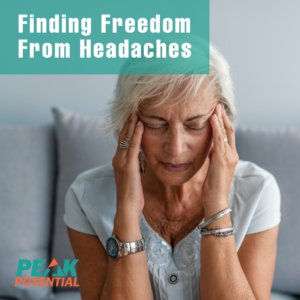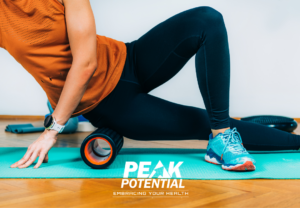Emotional ups and downs, and periods of
stress aren’t a sign of illness. . . they’re a sign
of being human!
But over the top responses to everyday incidents can
be a sign of chronic stress. And this can be dangerous!
When we are under stress, our body engages in a “fight
or flight” response to protect us from potentially
dangerous situations. This triggers a release of
adrenaline and cortisol into our system.
You feel this when your heart starts to race. You may
even feel sweaty, jittery, have a nervous stomach or
feel panic.
Initially, cortisol’s role is to help us deal with stress. It
shuts down unnecessary functions like the digestive
and immune systems in order to direct all our energies
toward dealing with the danger at hand. Over short
periods of time, cortisol is critical to our survival.
However, when this happens repeatedly, your body is
unable to properly restore to its normal state of calm.
When your stress response is triggered daily your
adrenal glands become exhausted and your cortisol
levels stay high.
Is it so bad to feel exhausted all the time?
Well, in this way stress and cortisol is not only affecting
your mental health, but also your bones, muscles, and
pain response.
When you are in over drive, you carry increased muscle
tension in the head, neck, shoulders, and back, which
can create pain. A correlation has been found between
chronic back pain and higher cortisol levels compared to
healthy individuals. High levels are also associated with
a stronger pain response.
The area of the brain that deals with stress responds
more strongly to pain when cortisol levels are high. This
does not mean the pain is “in your head’, but you truly
experience a greater pain response when you are under
stress.
So, we have increased muscle tension, increased levels
of pain, but also damage to our bones.
Without a long drawn out explanation of the physiology,
cortisol inhibits osteoblast formation and proliferation.
Osteoblasts are the cells that create new bone tissue
during the constant bone remodeling process.
Osteoporosis occurs when bone is broken down faster
than osteoblasts can rebuild it. Studies shoes a greater
bone mineral density loss when higher cortisol levels
are found in the blood.
Increased cortisol also decreases an amino acid called
proline. This is essential to bone remodeling, skin, joint,
and connective tissue health. Our bodies naturally
produce proline, but perhaps not in sufficient amounts
to counteract our current levels of stress. So, by
interrupting the rebuilding mechanisms in our bodies,
stress is aging us much faster than we otherwise would.
Learning to manage your stress response is important to
preventing injury, managing pain, and remaining active.
Stress happens to all of us.
How you deal with it is key.
Meditation is a good option to protect your self against
stress-related physical and emotional problems. It
lowers stress hormones in the body and increases
neurochemicals that allow us to relax. It doesn’t have to
be a long drawn out practice. Just a few minutes of
guided breathing, prayer, or sitting silently with your
thoughts can make a big difference.
Although, the research isn’t conclusive, certain foods
have been correlated with a reduction in stress. Try
mushrooms, walnuts, and apricots and see if you notice
a benefit.
In order to stay healthy, we must remember that
psychology and physiology are closely linked. By
reducing stress and anxiety, you will build stronger
bones and more relaxed muscles in your back.
Unfortunately, pain itself can be stressful and it can
turn into a viscous cycle. If you need further assistance
in management of back or neck pain, visit our website
and download our FREE Report:




